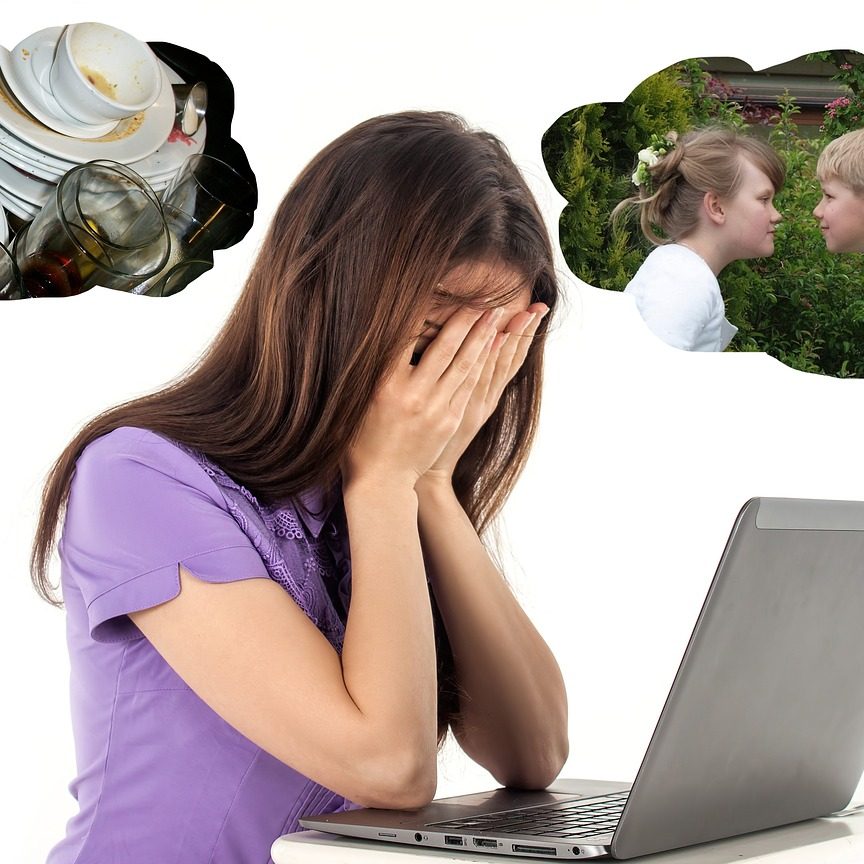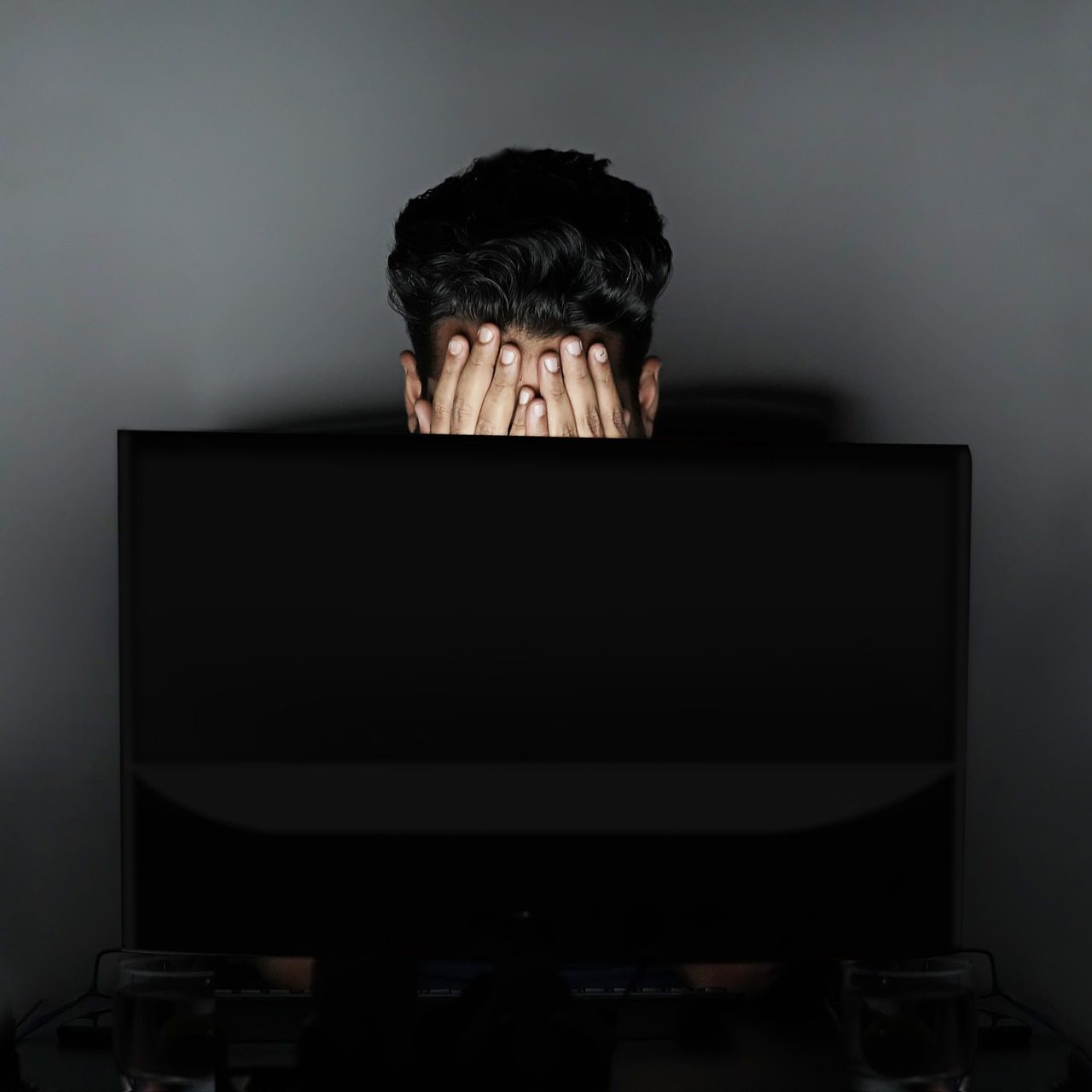Some ideas for coping and dealing with unwanted change by Peg Streep.
With the advent of the pandemic, many people are finding themselves in an unfamiliar and unsettling workspace—their homes.
I’ve been working at home for over thirty-two years and I’m always surprised by people’s misconceptions. People often say things like “Wow, you can watch television whenever you want” or “You can do the dinner dishes and laundry at your leisure,” which are true in one sense but not in another unless you want to end up living under a bridge.
In truth, working at home isn’t a good fit for everyone because it takes a fair amount of discipline and flexibility, especially if you are someone who thrives on a set routine as many people do.
Most people need some time to decompress to leave home life behind, especially if they have a family, in order to immerse themselves in work.
There’s also a built-in insolation if you work at home. If you’re the kind of person who really needs and likes the exchange with colleagues during the course of the working day, this could hit you hard. And perhaps most important, those who freelance all the time and work at home have actively chosen to, while those forced home by the pandemic haven’t. That is a key
factor.
7 Things You Can Do to Make It Easier
While I’m neither a therapist nor a psychologist, it doesn’t take a professional to figure out that unwanted change is the hardest kind of shift to deal with. When life throws you a curveball, your resilience and inner resources are tested and, while working from home may seem like the least of our worries during the pandemic, it may still present a legitimate crisis for some. (By the way, I’m not dealing with kids at home while you work because that’s a whole other problem.)
So, drawing on long experience, the following are some hopefully helpful hints.
1. Decide on a workspace.
If you already have a home office, that’s good for you—but many will not; in fact, many people won’t even have an area in their home that isn’t already dedicated to another use. If you have children and the schools are closed, you will probably need to be in a room with a door since it’s going to take some time for everyone to get used to the fact that Mom or Dad isn’t really
“home”; it just looks that way and she or he is actually at work.
Do what you can to make the space—even if it’s just a table in the corner—as comfortable as it can be; in the best of all worlds, you’ll have a window to look out of or something beautiful to rest your eyes on.
2. Decide on the length of your workday, and set hours.
Look at what you need to do and how many hours are required and set your workday accordingly. Because I’m a writer and don’t really have to communicate with colleagues, I begin very early in the morning and end before 5 o’clock—but the fact is you need to set your own hours just as if you were in an office.
Do take a lunch hour, either to eat or to take a walk or get some exercise. Many people in offices eat at their desks but that actually may be counterproductive when you work from home.
3. Do get dressed and showered.
It’s tempting to work in your PJs or bathrobe but, trust me, it’s not a great idea. You have to switch into work mode even if you haven’t left the house, and getting dressed is one way to do it.
No, you don’t even need to dress as formally as you would for a casual Friday but you need to get your head into a working space. You have to create routines that mimic what you’re used to in order to gear up and work. (Most successful freelancers, including myself, have pretty set routines to maximize their productive time.)
4. Use work as an opportunity to get out of the news cycle.
Because we all work on devices that handily deliver constant updates, it’s really easy to get completely overwhelmed and, yes, panicked with such fast-moving events (not to mention worrying about the financial repercussions). When you’re working, just work and nothing else. The news will still be there when you’re done.
5. Stop and do something else if you’re not getting it done.
If you’re having trouble concentrating for any number of reasons, take a break so you can reset.
First, figure out precisely what you are feeling so that you can address the emotions and manage them; if you’re feeling overwhelmed, call someone you trust. (This is going to be especially true if you live alone and your work normally provides you with important one-on-one contact and company.) If there’s an activity that always gets you into what Mihaly Csikszentmihaly
has called “flow”—something you love, that makes you happy, and that deeply involves you—do it. Spend an hour not working but flowing and then go back to work.
If your bosses are just relying on email rather than any of the apps that give you a sense of belonging to a group, do speak up and suggest they try to make people “see” and “hear” each other during this trying time.
Technology, in this sense, is a boon.
6. Anticipate stress if both you and your significant other are working from home.
It took less than two days before my neighbours—she’s used to commuting to an office and he’s accustomed to working in an empty apartment all to himself—started complaining about each other and panicking about how they were going to manage. In another apartment, a banker was taking a conference call while his two teenage daughters and wife bickered feet away.
Again, if you are lucky enough to live in a relatively large house, this won’t be your problem—but apartment dwellers in urban areas are likely to feel stress. Most couples do need time away from each other and independent spheres of action. Being suddenly deprived of both may feel like a real blow.
Manage your emotions and talk it through before you reach a tipping point.
Take a walk outside, exercise, meditate, journal, or do whatever will help you recalibrate. Do what you can to accommodate each other.
7. Cut yourself some slack and acknowledge the difficulty of the moment.
This is not meant as permission to sink into deep despair or self-pity, but to recognize that, yes, the normal rhythms of life have been upended and it’s going to take some time to get into it and make peace with it.
Stay well and be safe.

Annette Wright
How We Can Help
We offer a comfortable, therapeutic experience so you feel safe and secure when reaching out for help.
Anxiety
Anxiety and panic attacks can be very debilitating. There are a number of types of anxiety disorders and our trained psychologists can help in overcoming them.
Work Stress
Workplace situations can add to an individual’s personal stress levels. We can offer interventions and methodologies to assist in dealing with these stressors.
Relationships
Successful healthy relationships take work and can be difficult to succeed with. Our counsellors can offer guidance and assistance in helping you and your partner get there.
Depression
A very common problem which ranges from mild depression to clinical depression of which there are a number of types. Along with counselling – relaxation, positive thinking, diet and exercise can also help.
Self Esteem
Problems with how satisfied we are of ourselves can be changed. Individuals can do this but sometimes the help of a professional is needed, especially if low self worth is the result of other problems such as depression or anxiety.
AusPsychology
Our caring and highly qualified professionals in Brisbane are university trained, registered with the psychologists board and members of the Australian Psychological Society. They have extensive knowledge, skills, and experience in understanding people and their behaviour.
Get In Touch
07 3367 0333
Find Us
Milton Village Medical
Level 1/36 Baroona Road
Milton QLD 4066




